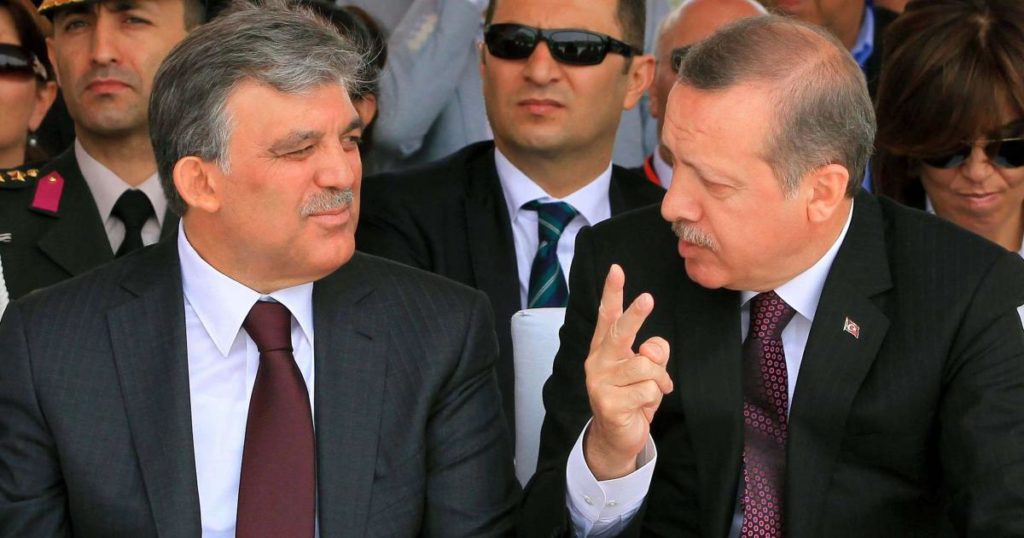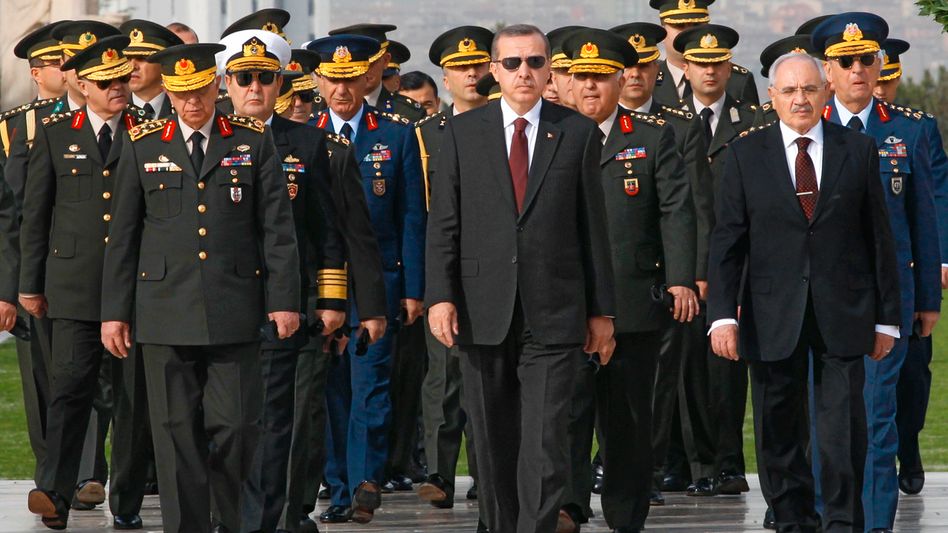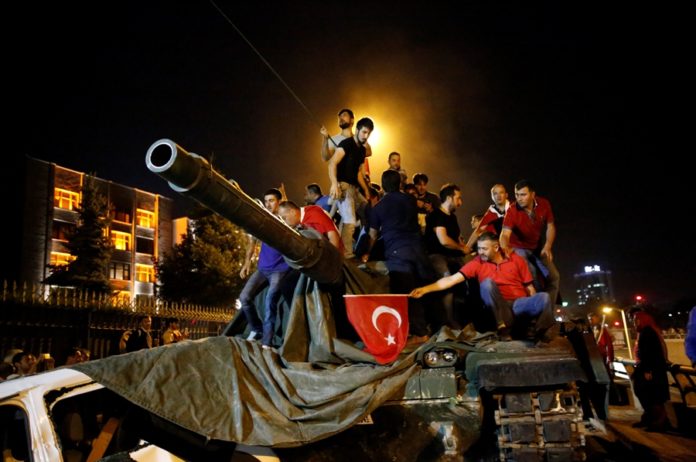Not how well you see in a clear weather but how well you see in a foggy weather determines how better you are than others”.
Mehmet Murat Ildan
The failed coup of 15 July, 2016 was a watershed event of modern Turkish history. It was the final and unsuccessful attempt of a faction of the Turkish Armed Forces (known by the Turkish initials TSK – Turk Silahli Kuvvetleri) to re-assert itself. Turkey was known as the ‘Army Nation’ in view of the dominant role of TSK since the inception of Turkey as a Republic in the aftermath of the First World War. TSK assigned itself the role of guardian of Kemalist tradition and all major decisions regarding security, economy and foreign relations were subject to TSK veto. TSK developed its own educational system of army run schools and military academies to man officer corps. It also carved a separate economic system to sustain its economic independence from the national exchequer. It took over direct control of the state almost by the clock every ten years in 1960, 1971 and 1980. TSK’s dominance was legalized in the 1982 constitution where military brass controlled decision making process through Supreme Military Council (known by its Turkish initials YAS –Yuksek Askari Shura). Under the nominal chairmanship of the President, civilian members of YAS included Prime Minister, Ministers of Defence, Interior and Foreign Affairs while Chief of General Staff (CGS) and heads of Army, Navy, Air Force and Gendarmerie represented TSK. Secretary General of YAS was a serving high ranking military officer reporting directly to Chief of General Staff and responsible for ensuring the implementation of YAS decisions by the government. TSK was in a unique position where it would provide information to government about various issues, recommend measures not only about Defence but also the economy, foreign relations, education and even administration of educational facilities, demand acceptance of recommendations without any revision and then monitor implementation by civilian government. In 1997, it forced the removal of Islamist Prime Minister Necmettin Erbakan by what was called ‘coup by memorandum’.
The June 2016 coup attempt was the concluding chapter of rapidly deteriorating relations between the ruling Justice and Development Party (known by its Turkish initials AKP – Adalatve Kalkinma Partisi) and TSK going back over fifteen years of tense and uneasy relationship. Both sides used their respective strengths to curtail the powers of the other. In 2007, the military brass unsuccessfully tried to block elevation of former foreign minister Abdullah Gul to the seat of president because his wife wore a head cover hijab. TSK also tried to use the Constitutional Court which was packed by old secular guards to ban AKP in 2008. The contest was very close as the case was dismissed only by a single vote.
AKP leader Recep Tayyip Erdogan moved slowly and cautiously to take control of power centers before directly confronting TSK. He gradually centralized his own power and later increased the powers of President before occupying this now powerful seat. The civilian Turkish intelligence agency known by its Turkish initials MIT – Milli Istihbarat Teskilati is headed by Erdogan’s confidant Hakan Fidan and influence of military personnel was gradually decreased. A back and forth struggle with military brass resulted in authorization for MIT to conduct surveillance of armed forces personnel. This authority was later rescinded when the military brass pushed back. In 2006, a new telecommunications directorate was established to centralize eavesdropping capacities of MIT, police and gendarmerie intelligence units. This new directorate was put under Communications Minister Binali Yildrim (Erdogan’s close associate who later became Prime Minister). Turkey’s signal intelligence was divided between civilian controlled MIT and military’s signal intelligence unit. In 2011, military’s signal intelligence directorate was made subordinate to MIT.
Erdogan made an alliance of convenience with Fethullah Gulen. Gulen’s organization Hizmet is a combination of philanthropy, education enterprise, media houses and a business guild. Erdogan used Gulenist sympathizers in police and judiciary to decrease the dominant role of TSK. Erdogan used AKP’s legislative authority and prepared the ground by providing the right legal tools. New constitutional reforms approved in a 2007 referendum allowed soldiers to be tried in a civilian court and the pro AKP and pro Gulen media outlets publicized many stories of alleged coup plots and severely undermined the army’s reputation. the Judiciary and civilian bureaucracy were junior partners of TSK in asserting military’s predominant role. Gradual infiltration of these two branches by Gulenists weakened TSK’s civilian pillars of support.
Gulenist sympathizers in police and judiciary now came out in the open to clip the wings of TSK. Several former and later serving officers were accused of plotting coups. Hundreds of officers were charged, arrested and prosecuted in two notorious alleged conspiracies, Ergenekon and Balyoz (Sledgehammer). In Ergenekon case, in 2007, the government alleged that dozens of military and security officials, opposition law makers and journalists belonging to a secret organization Ergenekon tried to overthrow the government. In the Balyoz case, in 2010, the government arrested dozens of senior army officers alleging that these officers had planned to overthrow the government in 2003.

Prime Minister Erdogan and President Abdullah Gul started to assert themselves in YAS meetings. In 2010, Chief of General Staff General Ilker Basbug extended the terms of service of some senior officers who were under investigation. In the summer of 2011, Erdogan launched a pre-emptive strike to prevent promotion and posting of undesirable senior officers just before the YAS meeting in August. Police arrested twenty-two former senior officers linking them with ongoing investigations, this included four admirals and two four star generals (Generals Bilgin Balani & Nusret Tasdeler). In addition, pro AKP media outlets suggested that promotion of many senior officers under investigation would be blocked and they would be forced to resign. By this shrewd move, more than a dozen senior generals and admirals due for promotion and important postings were taken out. Erdogan was also anxious to force the retirement of detained active service senior officers. The reason was that while still on active roster, they were detained at Hasdal military prison. Once retired they could be transferred to Silivri civilian prison. In July 2011, Chief of General Staff General Isik Kosaner and commanders of army, navy and air force resigned as protest over arrest of a large numbers of TSK officers. This move plummeted the morale of TSK and strengthened the hand of Erdogan.
In the fall of 2012, a Turkish court convicted close to three hundred and fifty officers in the Balyoz trial lingering for a while on allegations of plotting a coup in 2003. In an unprecedented move, former heads of all three services (General Cetin Dogan of the army, General Ibrahim Firtina of Air Force and Naval Chief Admiral Ozden Ornek) were given long prison sentences. Civilians were not yet done and in another stunning move in 2013 former army chief General Ilker Basbug was also sentenced to life imprisonment.
TSK continued to bleed and in 2012 prosecutors announced that seventy-five naval officers were being tried for running a sex for secrets ring. Admiral Nusret Guner the number two of Turkish navy who was expected to take over in the fall of 2013 unexpectedly resigned in January vouching for innocence of his colleagues. In the fall of 2013, Erdogan embarked on punishing TSK for all its past sins, more than one hundred senior officers were indicted for forcing removal of Erbakan in 1997. The list included former Chief of General Staff General Ismail Hakki Karadayi and former land Forces Commander General Erdal Ceylanoglu.
While facing an increasing assertive civilian set up confident from successive electoral victories, TSK was gradually losing its internal cohesion due to emergence of various factions. On ideological grounds, there was old secular guard and new fault lines of officers sympathetic to Gulenist ideology while some officers embracing Dogu Perinchek worldview (Dogu is a former Maoist who now advocates a militant Turkish nationalism liberally mixed with a conspiratorial worldview). In addition, officer corps was divided on strategic orientation of the country. The ‘Atlanticist’ group advocated to stay the course with NATO and United States while ‘Eurasianists’ advocated change of direction by developing close relations with Russia. Senior officers lost the confidence of junior officers for failing to protect officer corps from real and imagined conspiracies propagated by pro AKP and pro Gulenist media houses and large-scale arrests of officers.
It was in this background that a group of second and third tier TSK officers concluded that they had not much time left to strike before Erdogan came with his final blow in upcoming August 2016 YAS meeting. Various factions of three army formations (1st, 2nd & 3rd Army), some officers at army headquarters and number of air force and some naval officers were involved in the coup attempt. Many senior officers were alleged to be part of the coup including 2nd Army commander General Adem Huduti, 3rd Army commander General Erdal Ozturk, Malatya garrison commander Major General Avni Angun, Commander of Akinci helicopter air base, Brigadier Hakan Evrim, Akinci Jet air base commander Kubilay Selcuk, head of strategic planning division Major General Mehmet Disli, director human resources, Brigadier Mehmet Partigoc, commander of 1st Special Forces Brigade Brigadier Semi Terzi and several air force and naval officers.
On 15 July afternoon, a helicopter pilot assigned the task of flying out the MIT chief Hadan Fikan after his arrest on coup night spilled the beans to Hadan. Hadan informed the head of military police and later an emergency meeting was held at army headquarters attended by army chief General Hulusi Akar, Hadan and head of military police. General Akar issued orders banning military flights over Turkish air space and prohibited movement of armored vehicles from bases around Ankara. Coup plotters were now racing against time and they moved the time from 3 am of 16 July to 8:30 pm of 15 July. Major General Mehmet Disli of strategic planning branch at General headquarters went to Akar’s office informing him that the coup was in motion and he should now take charge. An angry Akar refused and other plotters at headquarters including Akar’s own advisor Colonel Orhan Yikilkan and adjutant Lieutenant Colonel Levent Torkkan put him under arrest. Three dozen special forces soldiers made their way to headquarters and Akar was flown to Akinci air base.
The majority of senior air force generals including air force chief General Abidin Unal were attending the wedding of daughter of General Mehmet Sanver (commander of Eskisehir Combatant Air Command) at Moda Deniz club making the job for coup plotters very easy. A detachment of soldiers in five helicopters landed at the lawns of the club and bagged the whole air force brass. Naval chief Admiral Bulent Bostanoglu was detained by naval officers involved in the coup including the Chief’s own special secretary Colonel Mahmut Arduc and commander of Golcuk naval base Rear Admiral Hayrettin Imran. Another detachment of soldiers made their way to state television channel to announce the coup. Fighter jets and attack helicopters bombed parliament, police and intelligence headquarters. A special forces team from Izmir made their way to the hotel where the President was on his holiday but he had flown out just in time to escape arrest.
Following his instincts, Erdogan made the courageous move of flying back to Istanbul and asking his supporters to come out in streets. Now a series of factors including refusal of most senior officers to back the coup, lack of coordination by coup plotters, protestors confronting confused young conscript soldiers on the streets quickly took the steam out of an ill planned and ill executed coup attempt. The drama ended within twenty four hours with around two hundred and fifty dead and over a thousand wounded.

In the immediate aftermath of the coup, thousands of officers and Non-Commissioned Officers (NCOs) were dismissed within three months. 40-50% of flag rank officers of Turkish army, air force and navy were sacked. Over five hundred colonels and almost half of combat pilots of Turkish Air Force were also sacked. The civilians were deeply suspicious about everyone. The first post-coup YAS meeting was held at Prime Minister’s residence at Cankaya Palace instead of the military headquarters. Air space was closed and security was provided by police and intelligence officers instead of army personnel.
A year after the coup, TSK was still underdoing significant changes. In early August 2017, YAS now dominated by civilians decided to further cleanse the top echelons. All three services got new commanders (two of these senior officers had been held hostage by coup plotters). YAS also decided to demote several senior officers and approved appointment of relatively junior officers to important posts. The Naval commander was fifth in seniority and a relatively junior officer, Brigadier Ahmet Ercan was appointed head of Special Forces. General Hulusi Akar and Erdogan had a common interest in these changes. Seven generals and admirals of TSK were asked to retire under the threat of dismissal. In August 2017, Fleet Commander of Turkish Forces Admiral Veysel Kosele resigned.
Erdogan who is trying to become a neo-Ottoman Sultan faces the same dilemma that Sultan Mahmud II faced in the summer of 1826. Janissaries Corps was the empire’s crack troops that conquered vast lands for the Sultan during the heydays. However, Janissaries became a privileged hereditary elite exempt from taxation and they jealously guarded their perks and privileges and any monarch who tried to curtail their influence was deposed or killed. In 1826, they revolted against the Sultan. Sultan Mahmud disbanded the Janissaries Corps after suppressing the rebellion, killing, exiling and imprisoning large numbers.
TSK is decapitated from the top (more than half of senior brass dismissed or under arrest), hollowed from the middle (sacking of over 500 colonels) and weakened at the bottom (sacking of substantial number of NCOs) and in the present situation it poses no threat to the political order. However, Erdogan is not sure about who to trust. He has offered an olive branch to sympathizers of Dogu Perincek in the TSK; Dogu is a former Maoist who now advocates a militant Turkish nationalism. He heads a very small party but is able to penetrate TSK where some officers embraced Dogu’s worldview. Erdogan has also sent signals of reconciliation to secular and Kemalist officers by blaming previous witch hunts on Gulenists. Conservatives especially adherents of some Sufi orders are also vying to replace some of the purged elements in security forces. Erdogan hired retired Brigadier Adnan Tanriverdi as his military advisor who was retired in 1997 on suspicion of having Islamist leanings. In 2012, he started a private security firm, SADAT and it is alleged that his company provided training and weapons to Syrian rebel groups. During the June coup, members of SADAT helped police thwart the coup. So far, Erdogan has kept TSK on a hook while strengthening police special forces, civilian intelligence and paramilitary forces as well expanding the role of private security contractors to fill the security gap.
Decisions taken in the aftermath of the coup will have long term impact on TSK. Some measures such as strengthening of civilian control of TSK, civilianizing higher echelons of ministry of Defence, abolishing the presidential guard and bringing Coast Guard and Gendarmerie under the Ministry of Interior are correct measures. In addition, the military’s educational and economic institutions as well as military hospitals have been taken away from TSK and brought under civilian control. However, the most dangerous measure that can severely undermine the military will be if Erdogan extends eastern patronage system to the armed forces by bringing unqualified but loyalists into TSK. In Turkey, this traditional patronage system known as kadrolasma was successfully used by Gulenists as well as Erdogan to infiltrate the civilian bureaucracy, police and judiciary. The result was rise and fall of occupants of substantial number of important government functionaries with changing political winds resulting in severe deterioration of government function. If the same is done to TSK then we will see the emergence of factions in TSK and resulting in long-term instability.
There is now an obvious choice for Erdogan. A transparent trial of the accused officers and appropriate punishments will strengthen the institutions but using this failed coup attempt to sideline all opposition and embark on a witch hunt will surely backfire. He can usher in a new era of a professional and non-political TSK or try to fill the ranks with unqualified partisans. If he follows the former course there is a chance that TSK will recover over a decade or two but if he follows the later course, then Turkey will see instability and potential chaos for a long time.
“Your most precious journey is the journey to your own mistakes and so you can face them.” Mehmet Murat Ildan
Acknowledgements
The author thanks many Turks of diverse backgrounds and political persuasions for their candid views, insights and perspectives. However, conclusions as well as all errors and omissions are authors’ sole responsibility.





